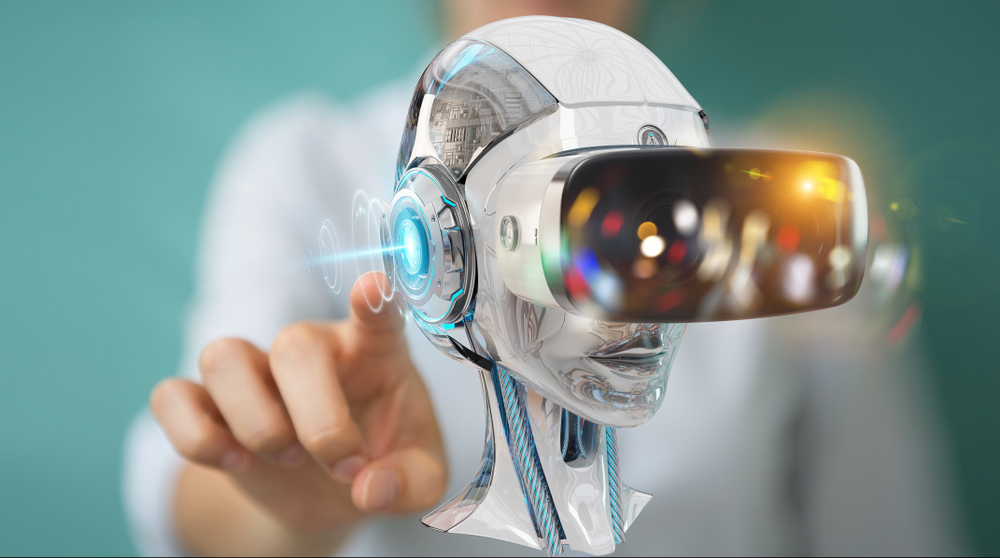Unveiling AI’s Impact on Gaming: A Deep Dive

AI is changing the landscape of the gaming industry. It is being increasingly applied to streamline the game development process as well as enhance the gaming/player experience.
The AI in gaming market is expected to expand by nearly $4.50 billion between 2023 and 2028. The key players in this growth include Alphabet Inc., Electronic Arts Inc., and Latitude. They are offering services to develop more dynamic and responsive games.
This article will guide you through the multifaceted impact and use of AI in gaming. From procedural content generation that can create entire virtual worlds to life-like NPCs and more, AI is making games more immersive and engaging.
Let’s dive right in!
1. PCG (Procedural Content Generation)
In game development, AI can be used to dynamically create assets such as levels, maps, and quests. This requires minimal manual intervention to create massive game worlds.
The algorithms save time and resources, all the while encouraging replayability and exploration. It is quite efficient in comparison.
Minecraft uses PCG to create landscapes that stretch to infinity. Each new world offers fresh terrain, biomes, and challenges. No Man’s Sky uses it to create vibrant near-infinite planets with unique flora and fauna.
2. NPCs (Non-Player Characters)
NPCs are important to provide interaction to players and drive the narrative forward. In the past, NPCs were simple, static, and predictable. They had their singular purpose and there was nothing beyond it.
With AI, specifically machine learning (ML) and natural language processing (NLP), games can have dynamic and responsive NPCs. These characters display realistic behaviors, engage in meaningful conversations, and showcase emotional depth. They are able to adapt to the player’s actions, learn from each encounter and exhibit complex, personable behavior.
This makes the game far more immersive.
An excellent example of responsive NPCs is from Red Dead Redemption II. They bring the Wild Wild West to life.
Whether you wish to integrate AI in your game mechanics or wish to hire Blockchain game development services, EDIIIE is the best choice for all things game-related. Contact us now!
3. Player Behavior Analysis
Extensive data on player behavior is analyzed by machine learning algorithms to tailor the game to the user. These are the player’s preferences, tendencies, and skill levels.
This makes the game more personalized to each player.
Depending on the player’s choices and progress, patterns emerge. This helps optimize game balance, difficulty levels, and monetization strategies.
The Witcher 3: Wild Hunt uses AI to continuously alter the gameplay and narrative based on the player’s decisions.
4. Game Development Tool
AI can perform tasks with greater efficiency than humans. This is leveraged to streamline the game development process and reduce manual effort.
The effort can go to focusing on the core gameplay and design and save the game devs time and costs.
You can automate aspects like the testing process to identify bugs and balance issues. The AI can playtest tirelessly and help the developer iterate on their work.
For example, Unity’s ML-Agents toolkit incorporates machine learning algorithms to develop intelligent NPCs, adaptive environments, and dynamic gameplay mechanics.
5. Ethical and Social Implications
With great power comes great responsibility.
- Aunt May, now.
The tremendous benefits of AI to all stakeholders are all excellent but there are several ethical and social concerns to be considered.
The potential for surveillance and violation of data privacy is a global issue. This user data can and has been used for targeted advertising and other commercial purposes. It is the responsibility of the game design studio to ensure that players have a say over their data. This is critical to maintain trust among players.
AI-driven realistic gaming experiences that promote emotional manipulation can have unintended psychological impact on the players.
The game “Detroit: Become Human” explores the themes of autonomy, identity, and morality.
Other issues like algorithmic bias, and the impact of automation on employment must also be considered during the game design process.
6. Case Studies
- Alien: Isolation – The game features an AI-driven alien that adapts to the player’s actions, leading to a tense horror experience.
- The Forza series – The games use AI to create realistic racing opponents that exhibit human-like behavior and adapt to the player’s skill level.
This is called the “Drivatar” system. The opponent mimics your racing habits. This provides a personalized racing experience.
- The Nemesis system in the Middle-earth: Shadow of Mordor – Based on the player’s choices the game creates unique enemies with distinct behaviors.
- The Last of Us Part II – The game features remarkably intelligent enemy NPCs. Their advanced AI allows them to coordinate strategies, utilize the environment tactically, and react emotionally to events within the game.
7. Future of AI in Gaming
The future is approaching fast and it is spectacular for AI in gaming. You can expect advancements like machine learning, neural networks, and deep learning. These unparalleled immersion, interactivity, and realism in gaming experiences.
The increasing adoption for VR/AR technology will blur the lines between the real and the virtual.
Technologies like cloud gaming and edge computing will allow you to play any game on any device, anywhere in the world.
Conclusion
AI in Gaming is the future.
And the future is now.
We get closer to more and more immersive gaming that blurb the line between the real and virtual world.
As a tool, it seems to be enhancing the experience for both developers and players. It is now the driving force that will shape the gaming world.
Also read: Building a Gaming PC? Here’s What You Really Need







